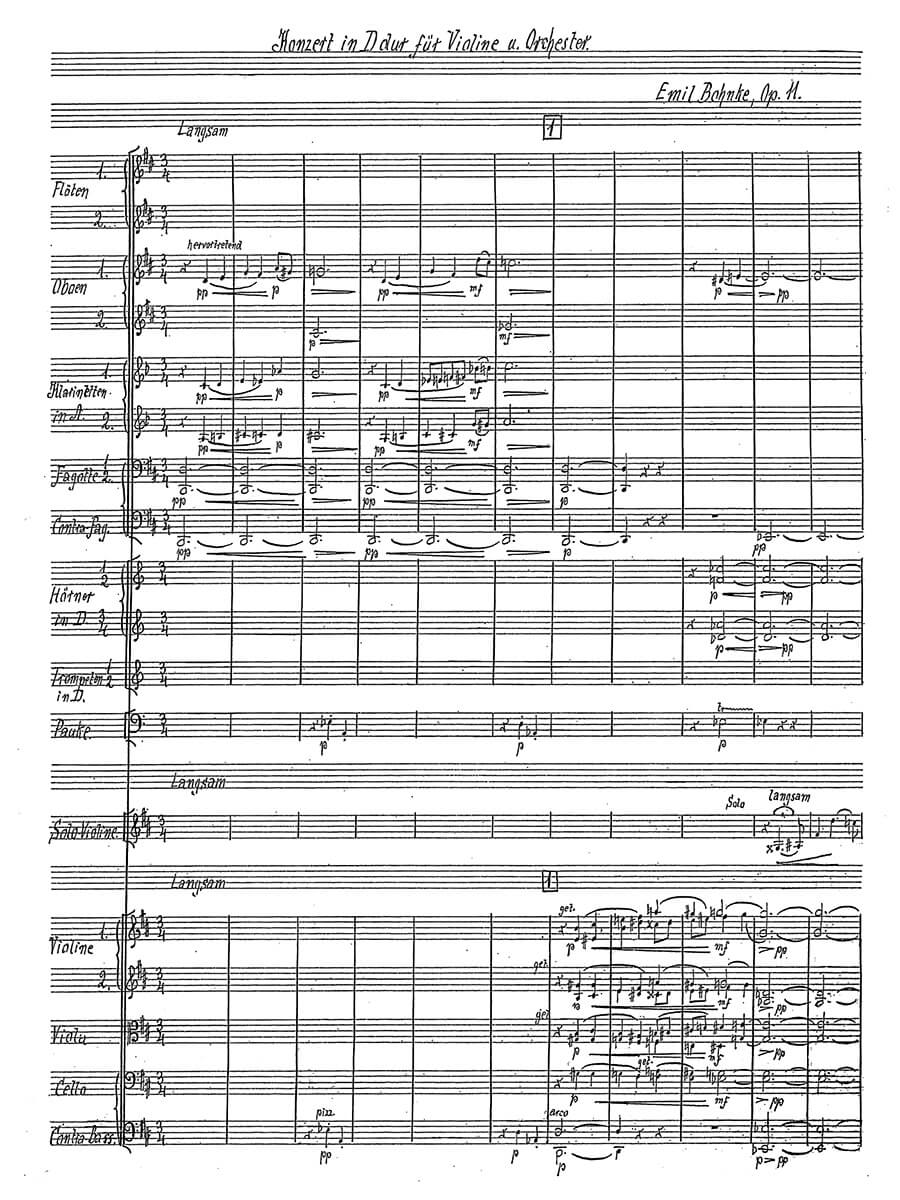Violin Concerto Op. 11
Bohnke, Emil
30,00 €
Preface
Emil Bohnke – Violin Concerto Op. 11 (1919-20)
(b. 11 October 1888, Zduńska Wola [near Łódź, Poland] – d. 11 May 1928 near Pasewalk)
I. First movement (p. 1) – Cadenza (p. 37) – Coda (p. 39)
II. Slow movement (p. 47)
III. Finale (p. 59)
As an outstanding violist and conductor, Emil Bohnke was also recognized as a composer at his time and held in high esteem by colleagues and connoisseurs of new music, but he died too early (together with his wife Lilli Bohnke [b. von Mendelssohn, 1897-1928], an outstanding violinist, as a passenger in a car accident) to become internationally successful with his own work. A few years after his death it was Adolf Hitler’s seizure of power that pushed progressive music like that of Bohnkes out of concert halls anyway, and after the Second World War only such music of the 1920s had a chance that had already managed to penetrate into general consciousness. It was not until the 1990s that Emil Bohnke‘s music experienced a renaissance on record and in the concert hall, almost exclusively thanks to the pioneering commitment of the violinist and pianist Kolja Lessing (b. 1961). Unfortunately, Bohnkes‘s son Robert-Alexander, who lived in Tübingen as a pianist, rather hindered the dissemination of his father‘s works. Today the musical estate of Emil Bohnke is in the custody of the musicologist Dr. Michael Kube (born 1968), who reserves the right to publish something on this basis at a later date.
Emil Bohnke had studied in Leipzig and Berlin before taking up a teaching post at the Stern’sches Conservatory in Berlin. In 1919 he became violist of the Busch Quartet for some time. 1923-26 he conducted the Leipzig Symphony Orchestra. In 1926 he succeeded Oskar Fried as principal conductor of the Berlin Symphony Orchestra. In his all too brief era he offered extremely interesting programs with many world premieres, among them central works of his friends Heinz Tiessen (‚Vorspiel zu einem Revolutionsdrama‘ on March 9, 1927) and Max Butting (2nd Symphony on October 13, 1926). As a Tchaikovsky conductor, Bohnke is impressively documented on a recording. …
Read full preface > HERE
Score Data
| Edition | Repertoire Explorer |
|---|---|
| Genre | Violin & Orchestra |
| Printing | Reprint |
| Pages | 104 |
